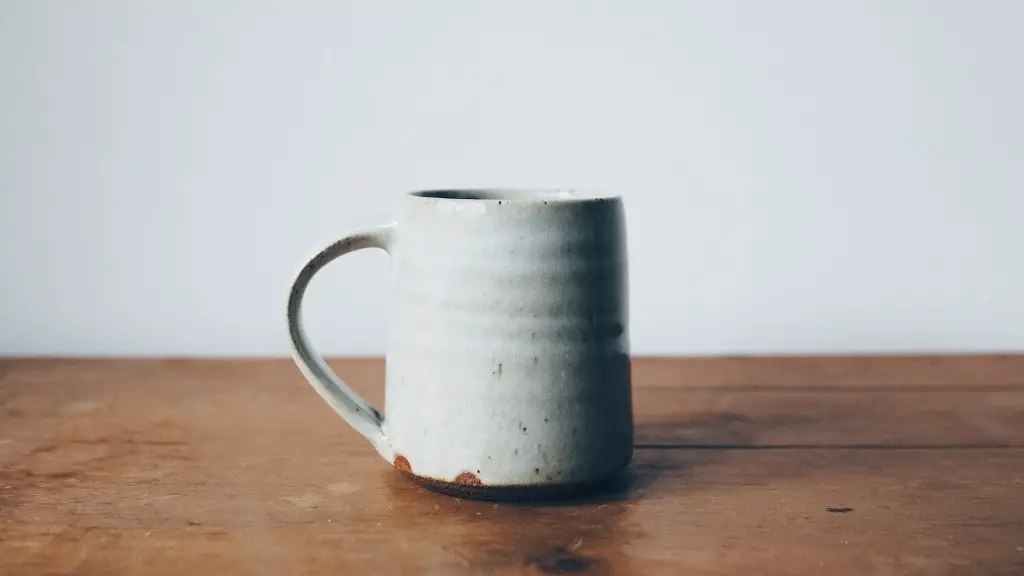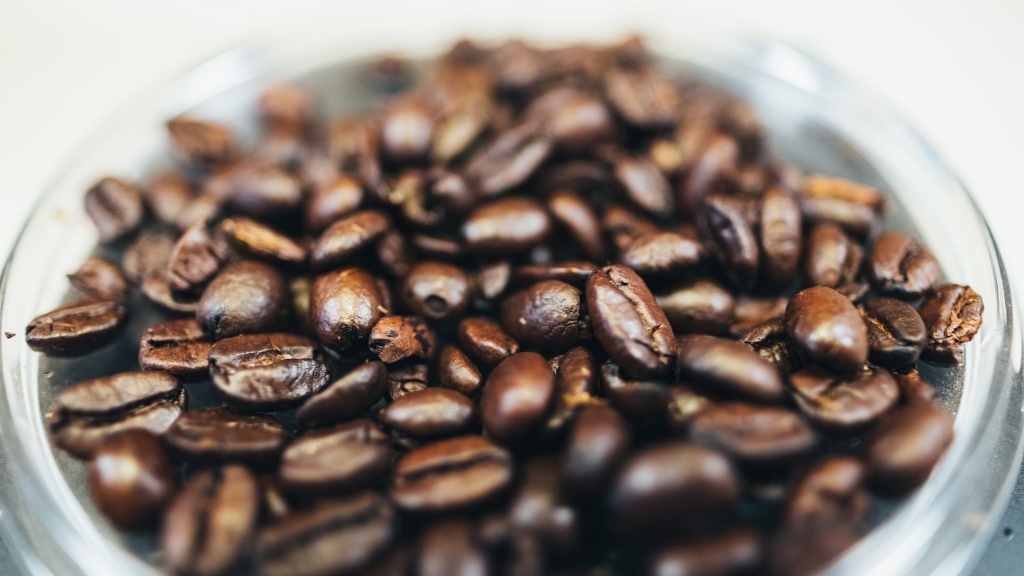Coffee is one of the world’s most popular beverages, but can it be safely enjoyed if you have cancer? The answer depends on several factors, including the type of cancer you’ve been diagnosed with, other medications you’re taking, and your overall health. Before making any decisions about your caffeine habits, it’s important to talk with your doctor about the potential risks and benefits for your particular situation.
Studies have suggested that moderate, regular coffee consumption may reduce the risk of liver, colorectal, and endometrial cancers. For cancer patients, however, the picture is much less clear. Some studies suggest that coffee may interfere with chemotherapy, radiation therapy, and other treatments, while others report no such effect.
Nevertheless, it’s generally advisable for people with cancer to limit their caffeine intake. Coffee is a diuretic, meaning it causes the body to lose water, which cancer patients may not be able to afford. Additionally, stimulants like caffeine can interfere with sleep, and a good night’s rest is especially important for cancer patients.
To be safe, cancer patients should discuss their caffeine intake with their doctor, who will be able to make informed recommendations about how much is safe for their condition. Most experts recommend that cancer patients limit their caffeine to no more than two 8-ounce cups per day, and people with advanced cancer should avoid all caffeinated beverages.
In addition to the caffeine-containing beverages we all know and love, there are a few other options out there if you’re looking for a non-caffeinated, cancer-friendly alternative. Many herbal teas, such as chamomile or rooibos, offer health benefits and can provide an enjoyable, non-caffeinated way to start the day. If you’re craving a coffee-like experience, there are also a variety of “coffee-like” brewed beverages such as chicory, dandelion root, or carob, which provide a similar flavor without the caffeine.
Ultimately, no one should drink coffee if they have cancer without consulting with their doctor first. Coffee has potential benefits and risks, and the balance between them will vary from person to person. The best thing for cancer patients to do is to talk with their doctor about their individual needs, and then make an informed decision.
Benefits of Limited Caffeine Intake
The amount of caffeine present in coffee can depend on a number of factors, such as the type of beans used, the method of brewing, and the length of time the coffee is brewed. Caffeine is known to have both long-term and short-term effects, and it can range from a mild stimulant to a strong sedative. Because coffee is usually enjoyed in moderation, the long-term effects are unlikely to cause health problems in most people.
That said, cancer patients may benefit from reducing their caffeine intake. Caffeine has been found to increase levels of the stress hormone cortisol, which can interfere with restful sleep. Additionally, too much caffeine can cause an elevated heart rate, which can exacerbate cardiac problems.
For cancer patients, reducing caffeine intake can allow for more restful sleep and lower levels of stress. As such, it’s important for cancer patients to talk with their doctor about how much caffeine is safe for them to consume.
Additionally, reducing caffeine intake can have other benefits. Decreasing caffeine can boost immunity, improve blood pressure, and promote better digestion and healthy gut bacteria.
Effects of Caffeine on Chemotherapy
Studies examining the effects of caffeine on chemotherapy have yielded conflicting results. A recent study by The National Institute of Health found that patients taking chemotherapy who drank coffee had a higher risk of relapse than those who didn’t. Other studies have also suggested that caffeine may interfere with the effectiveness of cancer treatments. It’s important to note, however, that more research is needed in order to determine the exact effects of caffeine on chemotherapy.
Even if caffeine does interfere with chemotherapy, it’s important to remember that it’s only one small piece of the puzzle. Cancer patients should always consult with their doctor about their caffeine intake, and make sure that they are taking advantage of all the available treatments and options.
When it comes to cancer, it’s important to take a personal, individualized approach. Every person’s body responds differently to treatment, and what works for one person may not work for another. Therefore, individuals should work with their doctor to decide what’s best for them regarding their caffeine consumption and any other aspect of their treatment.
Caffeinated Drinks and Radiation Therapy
Some studies have suggested that caffeine may interfere with radiation therapy. Researchers found that patients on radiation treatment who consumed more than 300 milligrams of caffeine per day had more radiation-induced damage to their skin than those who consumed less. However, more research is needed to prove any definitive link.
In the meantime, radiation patients should use caution when it comes to caffeine. It’s best to speak to your doctor about the effects of caffeine on radiation, and adjust your intake according to their advice. Reducing or eliminating caffeine may be beneficial for health regardless of your treatment.
Living With Cancer and Caffeine
Living with cancer is a challenging task, and managing caffeine intake can often be a source of stress. When it comes to caffeine and cancer, the best advice is to work with your doctor to decide what’s best for you. Your doctor can provide personalized advice based on your particular features and condition, and together you can decide whether you should eliminate caffeine entirely or reduce your consumption.
No matter what, it’s important to stay informed and make healthy choices. If you suspect that caffeine is interfering with your treatment, it’s best to talk to your doctor right away. By doing this, you can ensure that you’re getting the best possible care and making the most of your treatment.
Alternatives to Caffeine
If you’re looking for an alternative to coffee, there are several options available that don’t contain caffeine. Herbal teas are a great option, as they provide the same feeling of warmth and comfort as coffee without any of the stimulants. These teas can also provide health benefits, such as increased immunity, better digestion, and improved sleep patterns.
There are also several “coffee-like” beverages on the market today that offer a similar flavor to coffee but don’t contain any caffeine. For example, chicory, dandelion root, and carob are all brewed drinks that can be enjoyed hot or cold. These drinks may not offer the same kick as a traditional cup of coffee, but they can still provide a refreshing and delicious drink option.
Ultimately, it’s important to make healthy choices when it comes to caffeine and cancer. Talk to your doctor and decide together what’s best for you. By doing this, you’ll be sure to make the most of your treatment while still enjoying the rituals of your day-to-day.
Tips for Managing Caffeine Intake with Cancer
When it comes to managing your caffeine intake with cancer, there are a few tips to keep in mind. First and foremost, lifestyle changes can go a long way. Avoiding late-night caffeine binges, eating well, exercising moderately, and getting more rest can all be beneficial for cancer patients. Additionally, drinking plenty of water is essential for staying hydrated, which is key for cancer patients.
It’s also important to be aware of the sources of caffeine you’re consuming. If you’re drinking sodas or energy drinks, try to opt for caffeine-free versions. Another good option is decaf coffee, which still contains some caffeine but not enough to cause concern.
Finally, speaking with your doctor can help ensure that you’re making the best choices for your individual needs. They will not only be able to guide you in your caffeine decisions, but can also provide additional information and advice.
Conclusion
The question of whether you can safely drink coffee if you have cancer is a complex one. Ultimately, it depends on your individual situation, and any decisions related to caffeine intake should be carefully weighed and discussed with your doctor. By doing this, cancer patients can take a personalized, informed approach to making the best choices for their health.





